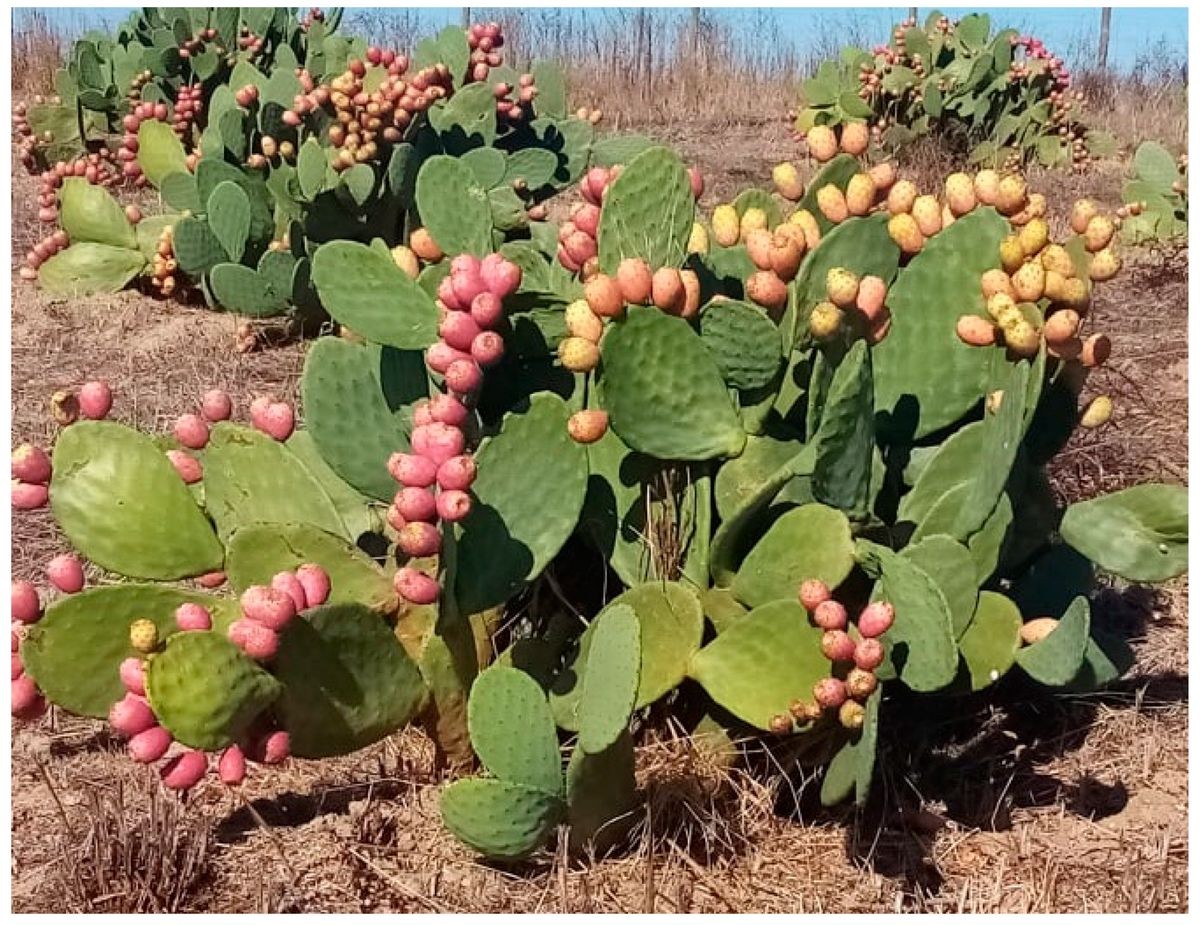
Contents
Opuntia ficus-indica
Opuntia ficus-indica is the botanical name for prickly pear, a cactus that grows in tropical and subtropical regions worldwide. It has been used in traditional medicine for various conditions like prostate enlargement, diabetes, and alcohol hangover. However, there is no scientific evidence to support these claims.
Opuntia ficus-indica has anti-inflammatory and antioxidant properties that can reduce the risk of diseases caused by oxidative stress. It also has neuroprotective effects and can lower blood glucose and cholesterol levels.
Prickly pear contains many beneficial substances and nutrients, including flavonoids, phenolic acids, carotenoids, fatty acids, sterols, amino acids, fiber, vitamins, minerals, betaxanthins, and betacyanins.
In addition to its medicinal uses, prickly pear fruits are edible and its tender cladodes can be used in salads and as fresh vegetables. The fruit and stem are used to make juice, jam, preserves, wine, and personal care products.
The suggested medicinal uses of Opuntia ficus-indica include:
- Type 2 diabetes mellitus
- Alcohol hangover
- Enlarged prostate and associated urinary discomfort
- High blood cholesterol
- Metabolic syndrome
- Obesity
- Gastritis
- Treatment of burns and wounds
Warnings
- Do not take Opuntia ficus-indica supplements if you are hypersensitive to any ingredient.
- Avoid Opuntia ficus-indica products if you are pregnant or breastfeeding or taking any medications.
- Opuntia ficus-indica may not work well with high-fiber foods.
- Use with caution if you have diabetes and are taking anti-diabetic drugs. Stop taking prickly pear at least 2 weeks before surgery.
What are the side effects of Opuntia ficus-indica?
Common side effects include nausea, bloating, mild diarrhea, increased stools, and headache.
Contact your doctor immediately if you experience any of the following symptoms or serious side effects:
- Serious heart symptoms
- Severe headache, confusion, weakness, vomiting, loss of coordination
- Severe nervous system reaction
- Serious eye symptoms
This is not a complete list of side effects or adverse reactions. Contact your doctor or report side effects to the FDA.
QUESTION
What are the dosages of Opuntia ficus-indica?
There is not enough scientific information on appropriate dosages. Follow manufacturer’s labels. Suggested dosing:
Adult:
- Broiled stems: 100-500 g/day divided three times daily
- Opuntia streptacantha species only
Alcohol-Induced Hangover:
- Extract: 1600 international units orally taken 5 hours before alcohol ingestion
Benign prostate hyperplasia (BPH):
- Dried, powdered flower: 500 mg orally three times a day
Overdose:
Overdose may cause stomach upset, nausea, and diarrhea. Discontinue use and stay hydrated.
What drugs interact with Opuntia ficus-indica?
Inform your doctor about all medications you are taking to check for possible interactions. Do not change dosage or discontinue medications without your doctor’s recommendation.
- No severe or serious interactions listed
- Moderate interactions include various medications
- No known mild interactions
It is important to inform your doctor about all medications you use. Check with your doctor or health care provider if you have any questions.
Pregnancy and breastfeeding
- There is not enough information on the safety of Opuntia ficus-indica during pregnancy and breastfeeding. Small amounts as food may not cause harm. Avoid medicinal use if pregnant or breastfeeding.
- Do not take any herbal supplement, including Opuntia ficus-indica, without first checking with your physician if pregnant or breastfeeding.
What else should I know about Opuntia ficus-indica?
- Opuntia ficus-indica fruit is likely safe as food. The stem, flower, fruit, and extracts are possibly safe for most adults in recommended doses for a short period.
- Follow label instructions when taking Opuntia ficus-indica. Natural products are not always safe, so follow suggested dosing.
- Consult your healthcare provider before taking any herbal supplement, including Opuntia ficus-indica, especially if you have health conditions or take regular medication.
- Herbal products often contain many ingredients. Check labels of your chosen Opuntia ficus-indica product.
- Opuntia ficus-indica is an herbal supplement and not regulated by the FDA. Products may vary in formulations, strengths, and labeling.
- Keep Opuntia ficus-indica supplements out of reach of children.
- In case of overdose, seek medical help or contact Poison Control.
Summary
Opuntia ficus-indica, commonly known as prickly pear, is a cactus found in tropical and subtropical regions worldwide. It has been used in traditional medicine for various conditions, but lacks scientific evidence to support these uses. Common side effects include nausea, bloating, mild diarrhea, increased stools, and headaches.


